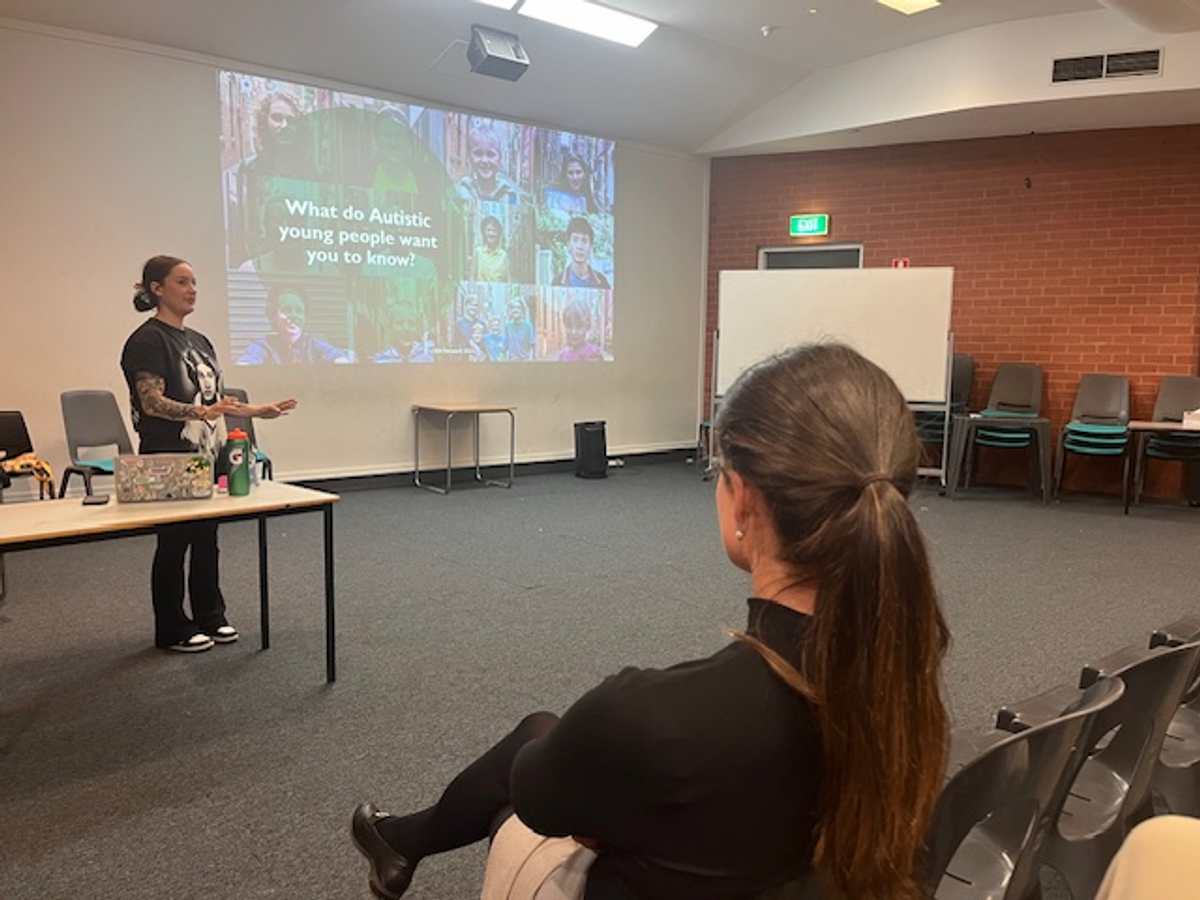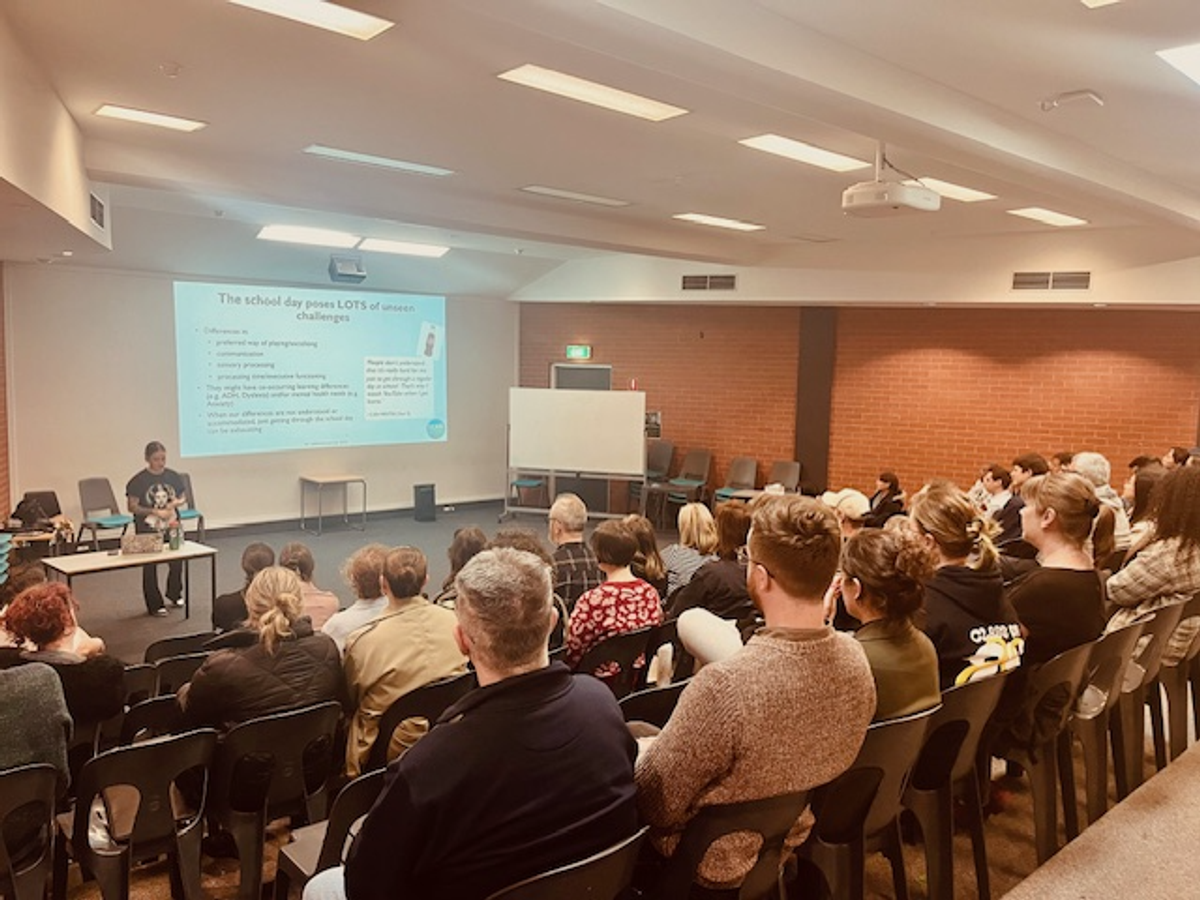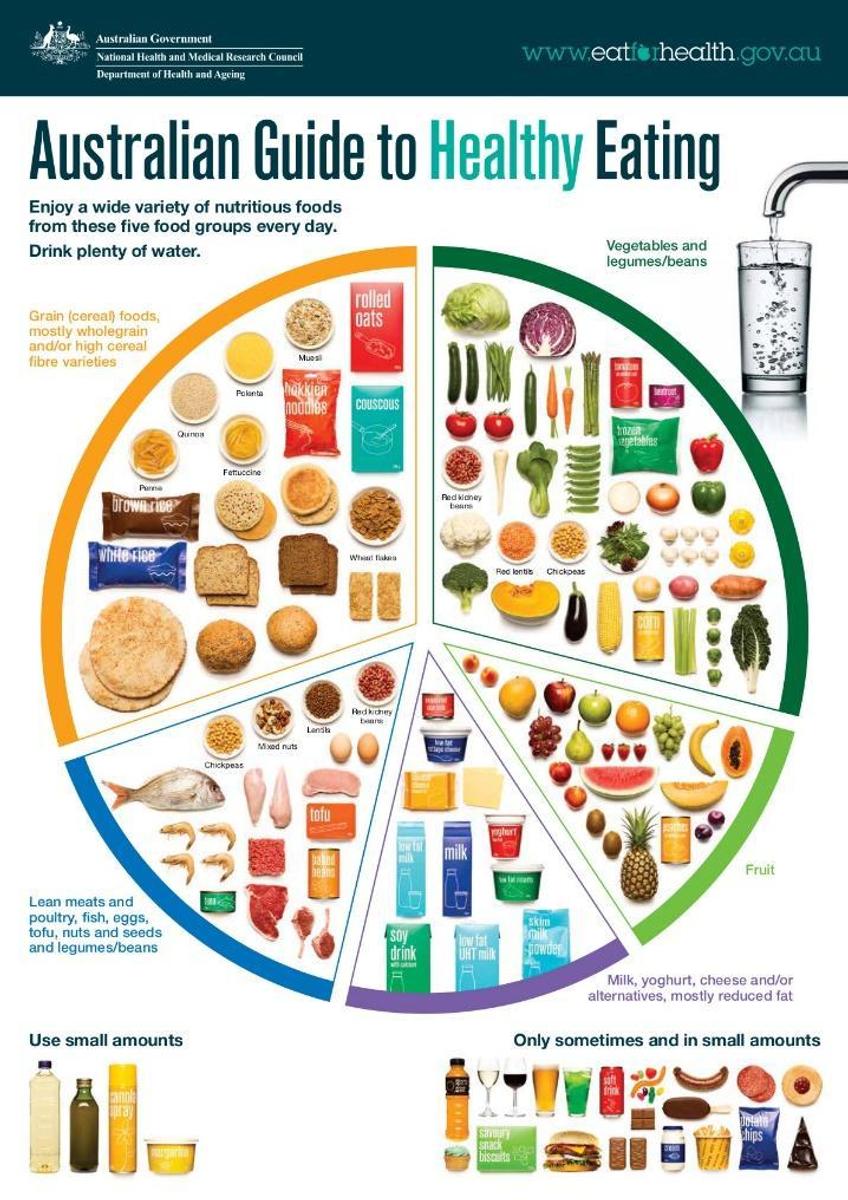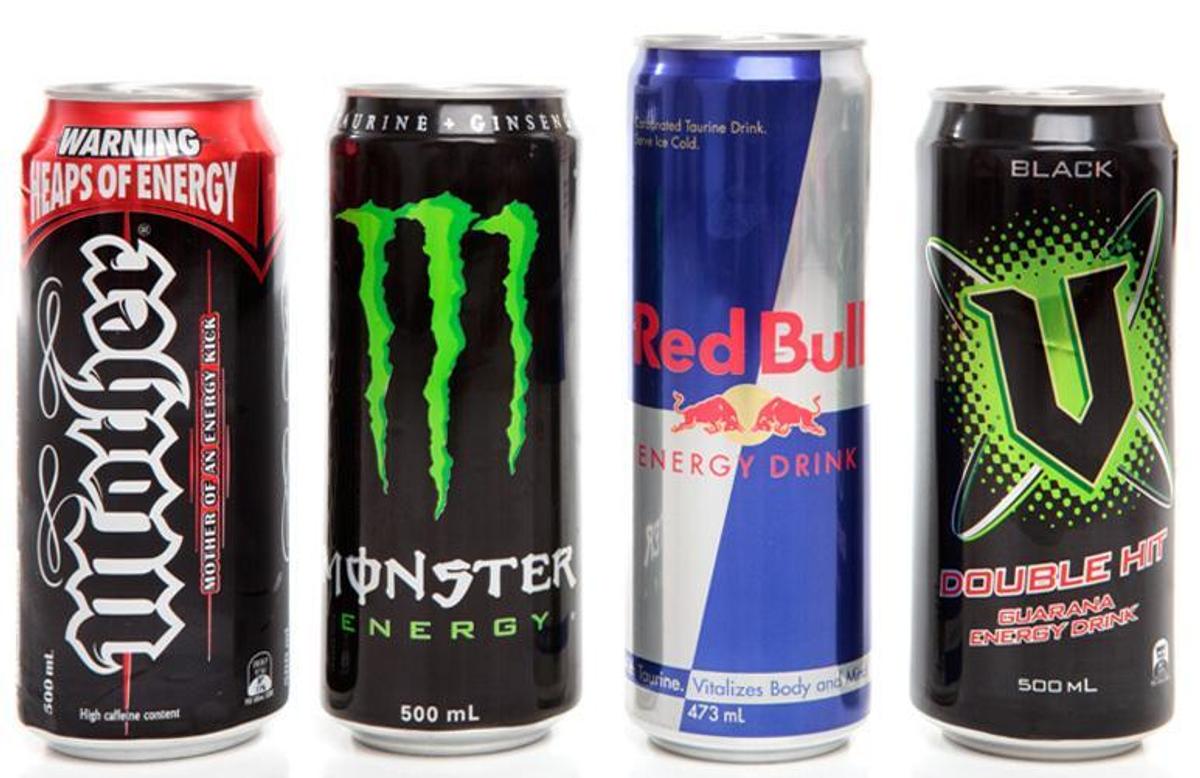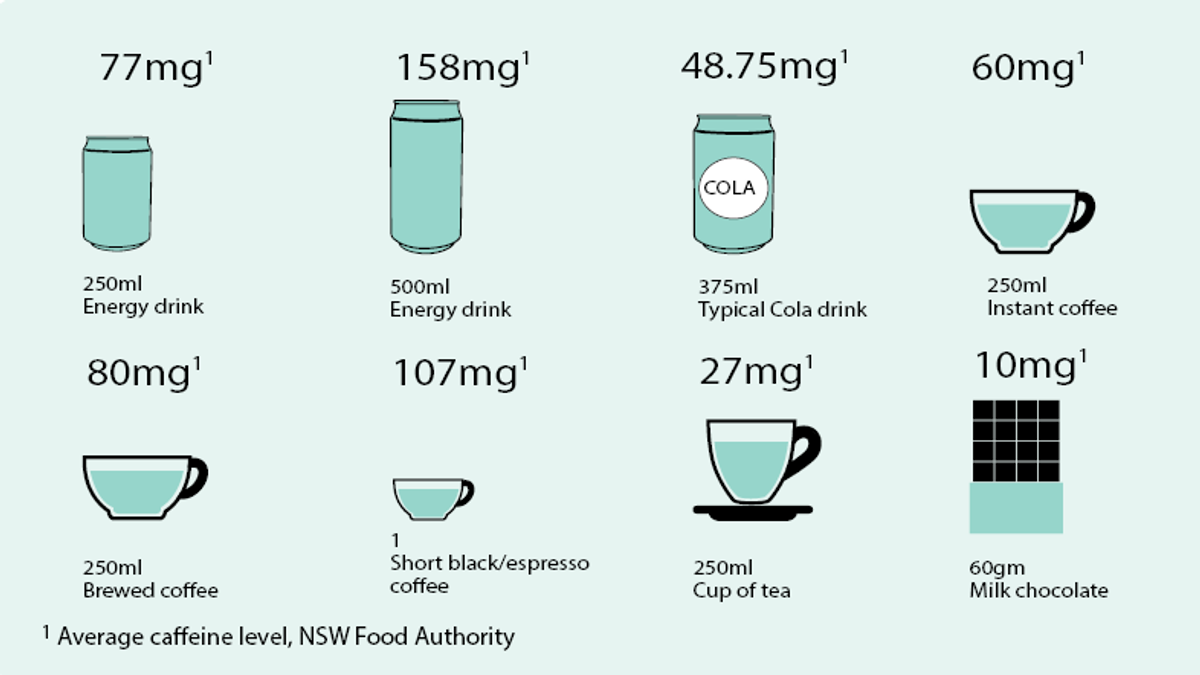Inclusion & Wellbeing
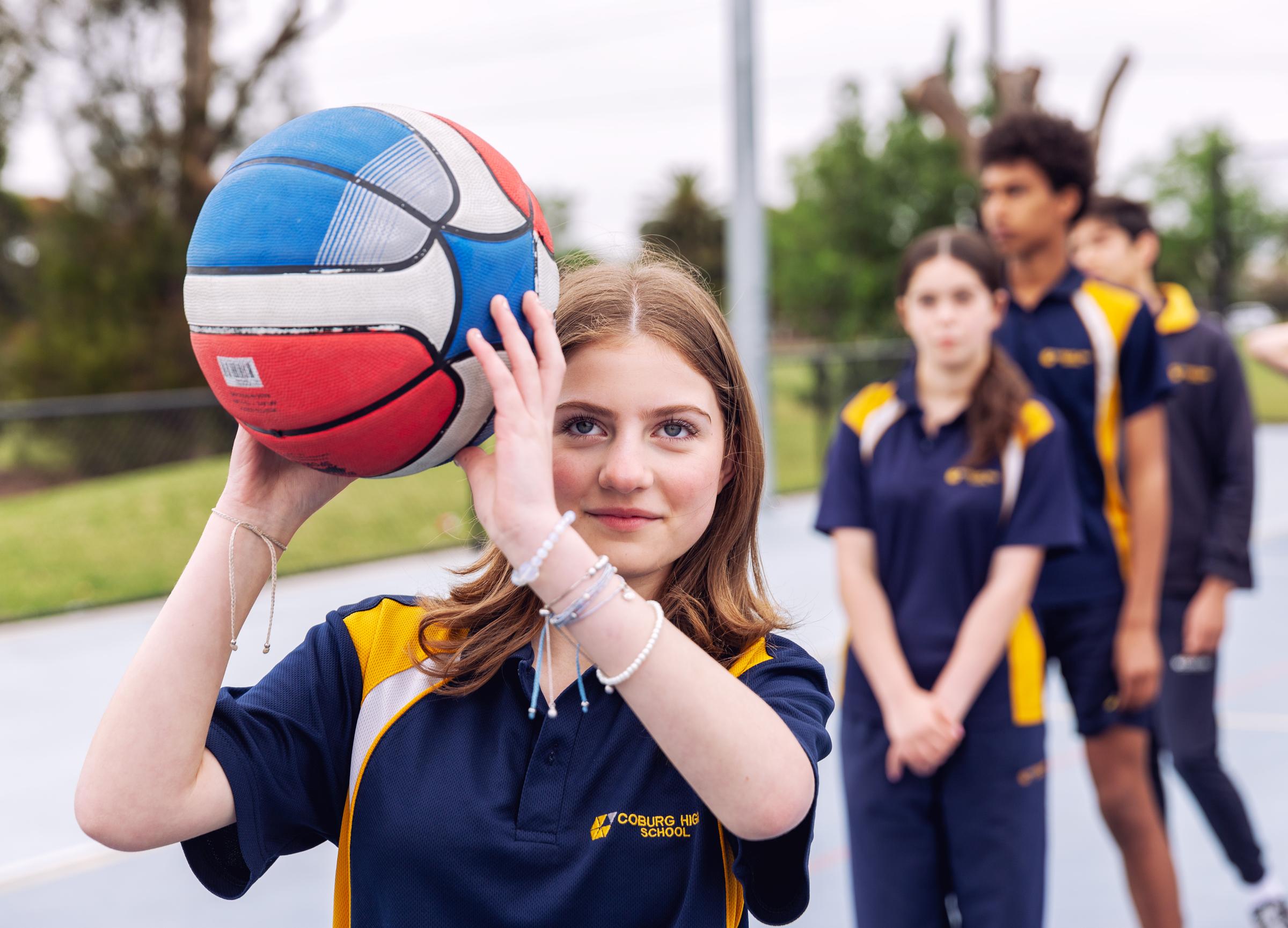
Inclusion @ CHS Update
Professional Learning
This term, CHS staff have participated in a series of professional learning sessions focused on inclusion. The first was delivered by Bec Pane, one of the mentors from I CAN. I CAN is Australia’s largest provider of autistic-led group mentoring programs. This session focused on neuro-affirming practices to support autistic young people in the classroom. The second was delivered by Sandhya Menon, an educational and developmental psychologist, and focused on neuro-affirming practices to support students with ADHD in the classroom. Last, a group of the leadership team delivered a workshop jointly built on learning from the Racism Policy Working group and a leadership team that has been exploring platforming the voices and experiences of young women at CHS. This session was all about creating and maintaining cultural safety in the classroom.
You can support this work by engaging your child in conversations about their experiences of safety at school and online, and what options are available to them if they witness or experience behaviour that compromises this. A reminder that the Call It Out Survey is an anonymous feedback tool you can support your child in using to report this behaviour. This is available under the ⭐ on Compass.
Diverse Learner Data Collation
At the end of last term, Student Support Teams and our Coburg Connect Teachers worked together to create a central record of the learning needs that exist across the school. It has revealed a group of students who teachers believe may be in need of additional support, particularly in relation to their social and emotional learning needs. Data like this will be invaluable as we prepare for our transition to Disability Inclusion in 2025. If your child has recently received a diagnosis that impacts their learning, make sure you communicate it with SST.
Focus Groups
Later this term, we will be organising two student focus groups on inclusion. These groups will provide space for diverse learners to share their experiences and ideas for how we can continue to strengthen inclusive practice across the school. Through them, we are hoping to hear both from students who are thriving and from those who often find school to be challenging and overwhelming. If your child is interested in participating, please encourage them to get in touch!
Brigitte Rogan
Inclusion Leader
Food and Healthy Eating
The food we eat has a profound impact on our everyday life and ability to function. This is particularly important for adolescents, who are going through a unique period of physical growth and development, whilst also laying the foundations for good health. According to the Australian Guide to Healthy Eating we should aspire to ‘enjoy a wide variety of nutritious foods’ from the following 5 food groups:
- Grain foods.
- Vegetables and legumes / beans.
- Lean meats and poultry, fish, eggs, tofu, nuts and seeds.
- Fruit
- Milk, yoghurt cheese and / or alternatives
We can all play a role in developing healthy eating habits. Key strategies include:
- Good food role modelling
- Choosing healthy food options.
- Enjoying food together as a family.
- Healthy food environments:
- Allowing children to be involved or observe food shopping.
- Involving everyone in food preparation (for example, encouraging your child to cook dinner for the family once a week).
- Limiting high sugar or processed food in the household, making it easier to make healthy food choices.
- Everything in moderation:
- Aiming for balance and variety in the foods we eat.
Food item spotlight: Energy Drinks
Energy drinks have long been thought of as providing an energy hit to support with study sessions, sport performances and alertness. While there is evidence to suggest that energy drinks can have those benefits, there are some unexplored risks associated with ongoing energy drink consumption, especially in young people.
In some overseas countries, energy drinks are banned from sale to those under the age of 18 years. Energy drinks are known to have unsuspectingly large quantities of caffeine, which can lead to cravings for caffeine and depending on the individual can have profound health consequences to cardiovascular health, sleep/rest regulation and increased anxiety. High levels of sugar in these types of products can lead to dental erosion and negative gastrointestinal effects with ongoing consumption.
One of the studies identified that factors that led to increase consumption included influence from peers, ease of access, price and marketing. Energy drinks themselves are not inherently bad, however problems may arise with excess consumption and potentially dependence on these products. It should be consumed in smaller frequencies and limited to ensure we don’t experience and negative health outcomes associated.
Please access the studies and more information below regarding this topic:
- Australian guide to healthy eating
- Cancer Council - Energy Drink Consumption and Sleep in Australian Secondary School Students
- Consumption of energy drinks by children and young people: a systematic review examining evidence of physical effects and consumer attitudes
- Energy Drink Consumption: Beneficial and Adverse Health Effects
- Family information sheet - Caffeine and energy drinks
Matthew Li
Health Promotion Nurse

